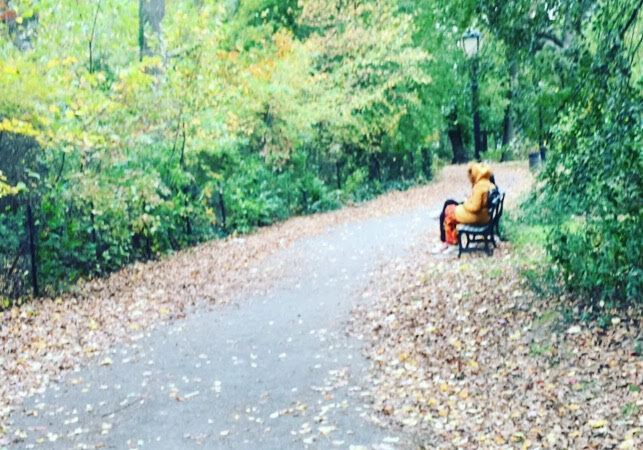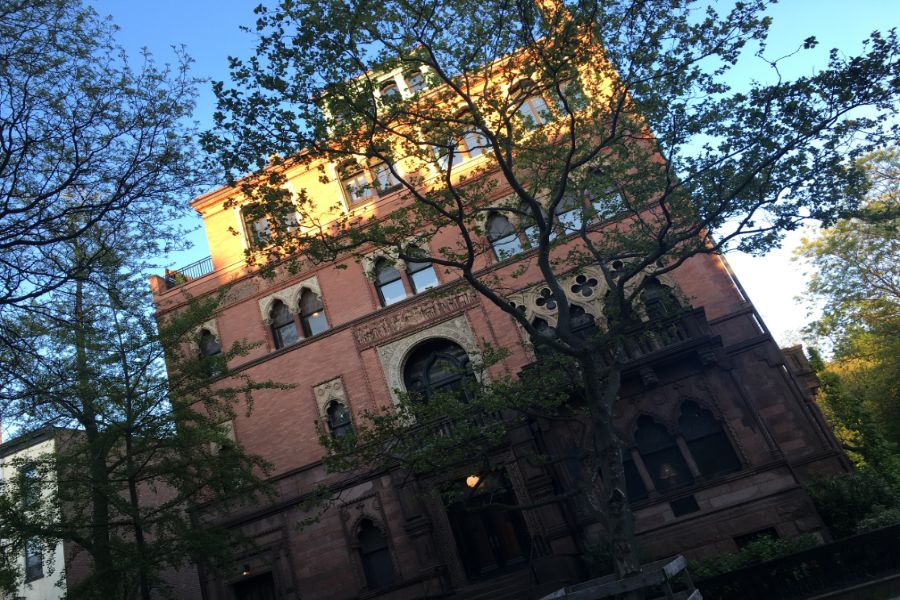January 17, 2024
Guaranteed to alter the quality of your consciousness

What do you do when you don’t know what to do?
When you’re feeling lost, confused, uncertain and stuck, is there some kind of subroutine you can perform to catapult yourself out?
This is a most underrated weapon in the personal development arsenal. Having an uncertainty subroutine is an invaluable tool for overcoming the helplessness, inertia and procrastination that inevitably come.
Now, modern wisdom suggests that in such moments, we have compassion for ourselves, accept the discomfort, remember we’re not alone, start asking better questions, trust the process, and the like.
And all of those responses are healthy and helpful.
But sometimes you need a little more urgency. A little more oomph to move the story forward. Some process you can turn to that’s guaranteed to alter the quality of your consciousness.
Most musicians have a version of this. When they don’t know what to do, they merely start playing and see where the music takes them. It sounds romantic and magical, and although most non musicians can’t really understand it, honestly, it’s not that heavy of a lift.
Putting their fingers on the keyboard, fretboard or drumsticks is something they’ve successfully executed tens of thousand times before. It’s mostly muscle memory at this point.
Do you have something like that? A trusted subroutine guaranteed to alter the quality of your consciousness? Something natural that changes your state instantly, no matter what environment you’re in, no matter how scared or frustrated you are?
Twelve step groups have sponsors for this very purpose. Members are encouraged to find an experienced fellow addict to help them understand and follow the program. Such relationships, referred to as helping behaviors, are clinically proven to correlate with increased abstinence and lower probabilities of relapse.
What’s interesting is, there are no official rules to this exchange. Sponsors voluntarily make themselves available to as part of their own sobriety journey. And members free to speak openly and honestly with this chosen person to develop a connection of trust and honesty. Sponsors help new members in whatever way possible, as long as it’s within their boundaries and knowledge.
For example, if an alcoholic is stressed because of a coworker, and feels the need to down a fifth of bourbon before lunch, they call their sponsor.
Or if someone has a big decision regarding their marriage, and they’re feeling the overwhelming urge to gamble away their children’s college fund on roulette, they pick up the phone and talk it through to avoid their triggers.
What if a recovering sex addict is being pressured by his friends to join them for amateur night at the local strip club? That’s one tempting situation that would be impossible to navigate alone, so they call their sponsor.
Point being, having sponsor, for many people, answers the question, what do you do when you don’t know what to do? It’s the uncertainty subroutine that alters their consciousness, which dictates how they view their reality, which helps the overcome helplessness, inertia and procrastination.
It turns on a part of them that, when it’s turned on, can make things happen.
Now, that particular example uses the relationship with another human being as the tool. But that doesn’t always have to be the case. Regulating our emotions with others is a deeply useful practice, unfortunately, it’s not always physically available.
Because what if you’re sitting on an airplane? Or there’s no mobile service in your area? There has to be some kind of subroutine you can perform in offline mode.
It sounds silly, but that’s a helpful way to think about this stuff. In the computer world, offline mode is when users can browse pages using local copies of those pages that have previously been downloaded while in the online state. This can be a lifesaver when the computer is offline and the connection to the internet is impossible or undesirable.
Same goes for troubleshooting our own internal issues. We need the ability to browse in offline mode. That way, we can still execute when the pressure is on.
I personally have always used some form of writing as my uncertainty subroutine. Which is easy for me to say because writing is my religion, but also because writing is a powerful and portable tool for immediately clarification. There is virtually never a moment in life when I can’t write something down.
Whether it’s on a device or by hand, documentation opportunities always seem to be within reach. Writing is always available to me because I’m always available to it.
And for the record, it’s not like I’m creating literature or poetry. There are no awards for this kind of writing,. I’m just getting everything out of my head that has potential value, transferring it to a more useful form, and taking the risk of having all these feelings and thoughts out in front of myself.
Some may see that resulting experience as intimidating, but I find it liberating. It’s my first responder whenever helplessness is running the show.
Some people start playing and see where the music takes them. Some people call their sponsor.
I write.
What do you do when you don’t know what to do?
Now that I think about it, that question would make for a perfect nursery rhyme. It goes like this.
What do you do when you don’t know what to do? Find the thing that makes you feel like you. Go for a walk, call a friend, or write a list. Whatever it takes to help you exist.
Imagine twenty kindergartners singing that song in unison.
What process can you turn to that’s guaranteed to alter the quality of your consciousness?

